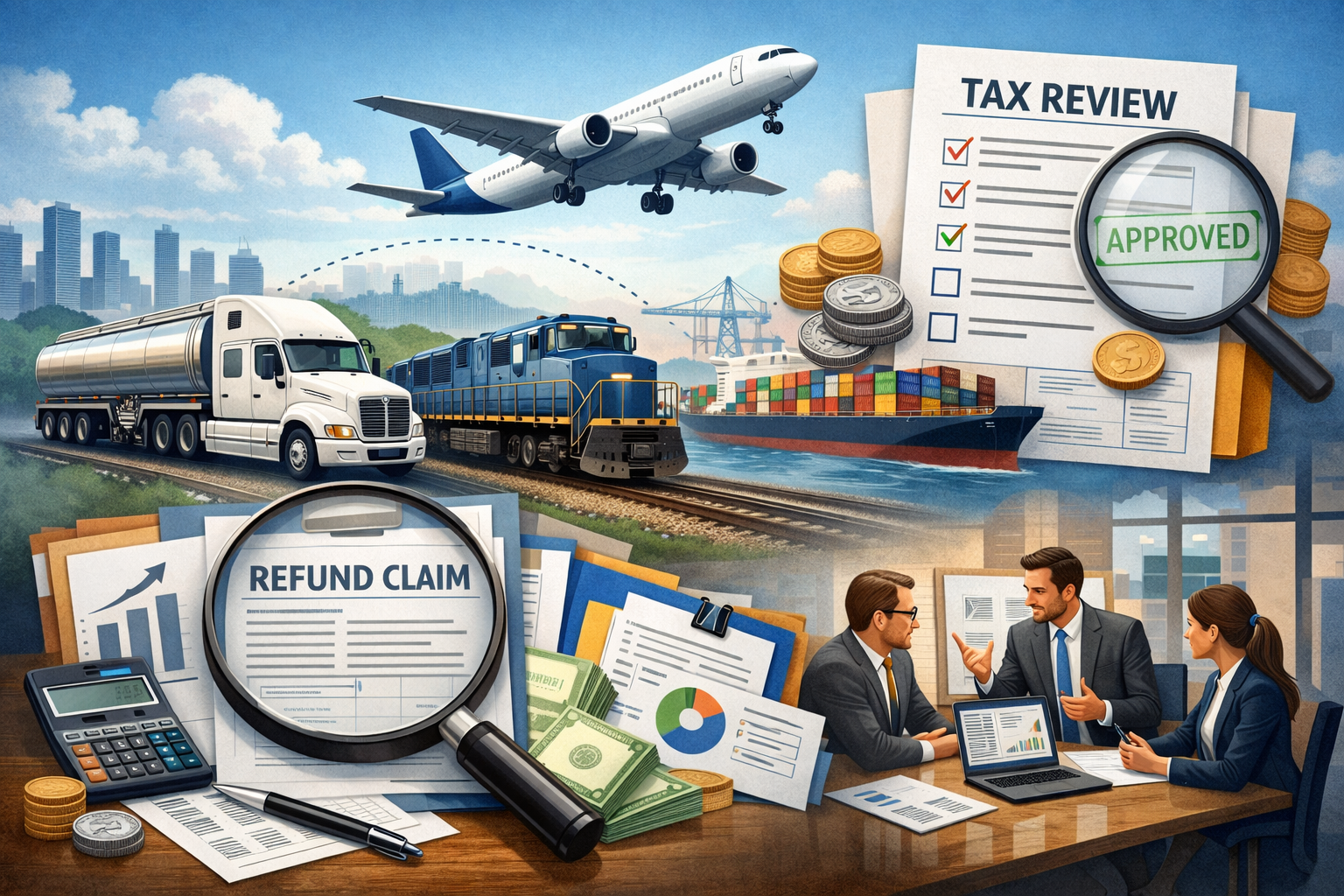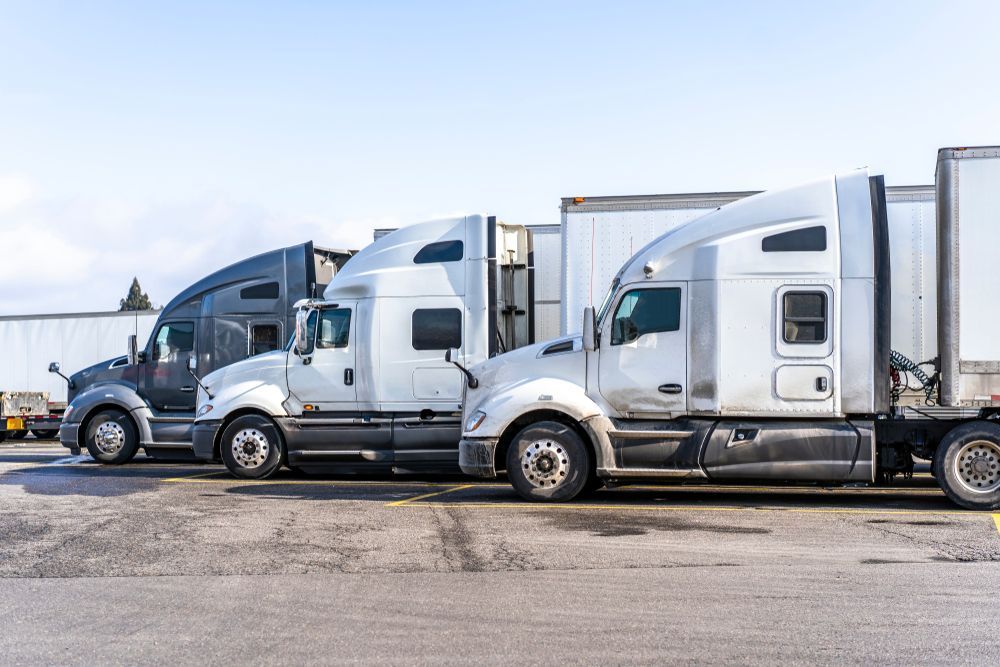Why Trucking Sales Tax Savings?
Share this Article:

When it comes to running a transportation business, most executives focus on fuel, labor, insurance, and equipment costs. But there's a hidden cost that often flies under the radar—sales tax on purchases that may not even be taxable. For the trucking industry, navigating sales tax is complicated, but mastering it can lead to significant and recurring savings.
Let’s unpack the why, the how, and the what-you-might-be-missing when it comes to trucking sales tax.
Why Sales Tax Matters in the Trucking Industry
Sales tax rates can range from 4% to over 10% depending on the state, and trucking companies are constantly making high-dollar purchases—equipment, repairs, replacement parts, safety technology, and even leases. If you’re paying sales tax unnecessarily, or missing exemptions, the dollars add up fast.
The Hidden Cost:
- A $300,000 tractor with 7% sales tax = $21,000 in tax
- A $2,500 monthly lease over 3 years = $6,300+ in tax
- Multiply that by your entire fleet and operations, and it’s a serious drain on profitability
Why the Trucking Industry Is Unique
Unlike retail or manufacturing, trucking has a mobile footprint. A truck may be domiciled in Georgia, but operate in 20+ states. That opens the door to interstate use exemptions, rolling stock rules, and other provisions that many states offer—but that few companies fully leverage.
Key complications include:
- Nexus rules: Do you owe tax in a state just because you have trucks driving through?
- Use-based exemptions: If a truck is used primarily in interstate commerce, parts and equipment may be exempt.
- Vendor errors: Many dealers or parts suppliers charge tax when they shouldn’t.
Understanding these nuances requires more than general tax knowledge. It takes sales tax expertise specific to transportation.
How to Save: 4 Common Opportunities
1. Rolling Stock Exemptions
Many states (e.g., Illinois, Missouri, California) offer exemptions for trucks, trailers, and parts used in interstate commerce. Qualifying for these exemptions can eliminate tax on major capital purchases.
2. Repair and Replacement Parts
Some states exempt parts used to repair or maintain qualifying rolling stock. Others require the vehicle to be over a certain GVWR (e.g., 26,000+ lbs). Most fleets are eligible but fail to claim these savings.
3. Leases and Rentals
Leasing is popular in trucking—but many lessors collect tax out of habit. If your fleet qualifies for exemption, you may be entitled to refunds or revised billing.
4. Sales Tax Refund Reviews
Even if you paid tax in error in the past, many states allow lookbacks of 3–4 years. A retroactive refund review can uncover tens or hundreds of thousands of dollars in overpayments.
What Happens If You Do Nothing
Doing nothing is common—but costly. If you continue overpaying:
- You're less competitive on cost-per-mile
- Your tax burden is higher than necessary
- You're leaving money on the table that could fund drivers, tech upgrades, or expansion
Worse, if you're underpaying without proper documentation, you may face audit risk. A proactive strategy prevents both.
The Bottom Line: Savings That Stick
Trucking sales tax savings isn’t about loopholes or risk—it’s about knowing the rules and applying them consistently. The right consulting partner can:
- Audit past payments for refund opportunities
- Train staff on proper exemption use
- Help you obtain and maintain resale or exemption certificates
- Review vendor compliance and usage documentation
The result? Permanent savings, better compliance, and peace of mind.
Take Action
At Transportation Tax Consulting LLC, we specialize in helping fleets of all sizes navigate complex sales tax regulations and uncover savings. Whether you’re a for-hire carrier, leasing operator, or private fleet, there’s likely money you’ve already paid—and money you don’t need to.
Let’s change that.
Share with Us:




